What is a personal plot and how to arrange it?
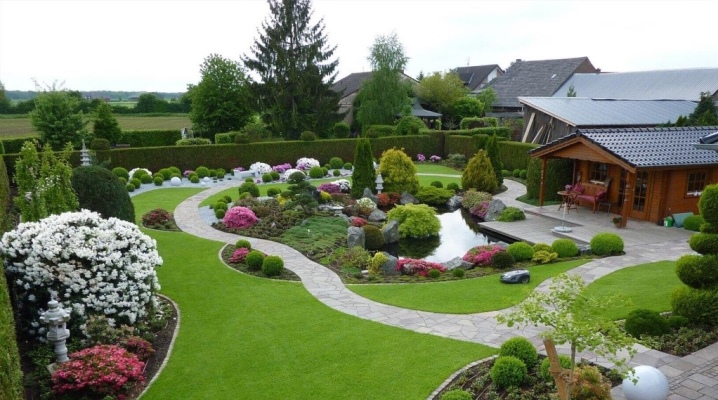
For all people who own land in the suburbs and are just going to buy it, it is important to know what it is - a personal plot, and how to arrange it, how to make a design with your own hands. Decorating a plot in a private house with beautiful flower beds and other decor can be very attractive if approached deliberately. But there are a number of subtleties associated not only with the technical side, but also with the legal one.
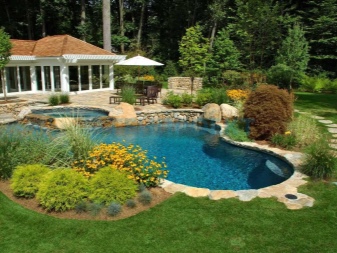
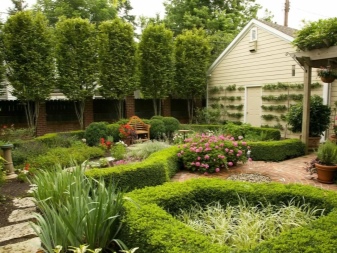
What it is?
The widespread opinion that a personal plot is "any territory adjacent to the house and equipped for oneself" is nothing more than a household interpretation. From the point of view of legislation, household plots are land that is substantively in personal use (private ownership) in rural areas. Therefore, the application of this term to any possessions located within the city or urban-type settlement is legally incorrect. Today, household plots officially belong to the category of lands of personal subsidiary plots, which should be enshrined in title documents. Only in this case is it allowed to build houses and other arrangements other than growing plants and keeping animals on a farm.
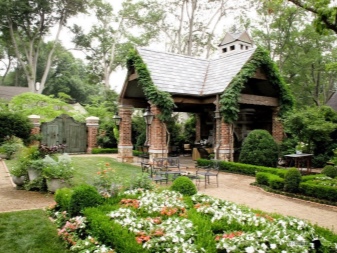
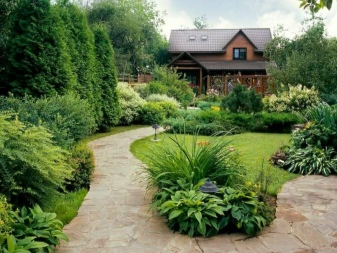
Main zones
For convenience, the entire territory is usually divided into several zones.
Residential
It is this segment that needs to be given special attention when drawing up a site development project and during its direct organization. It is the house that will also play the role of the semantic center of the composition. All other buildings and compound zones are built around it. When building a large dwelling, one must not forget that it will begin to cast a shadow.
This point is taken into account when determining the composition of plants that will be planted nearby.
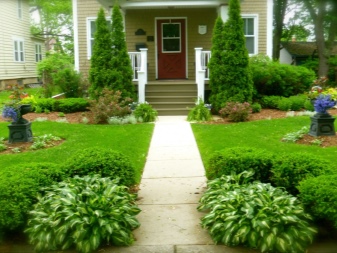
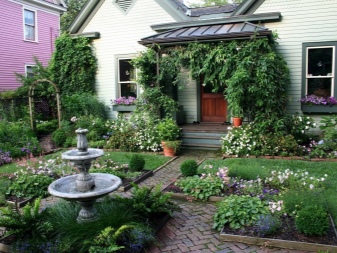
Important: the style of the house should also determine the style of the entire site. It is unacceptable to simultaneously use ultra-modern materials and create a garden in the old-fashioned spirit. If only a small area is available, it is possible to combine the living area with a play area, with a sports corner and a recreation area. Sometimes they act differently: they expand the living area itself, and refuse other objects.
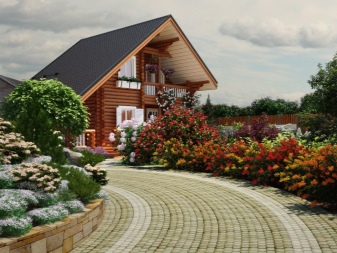
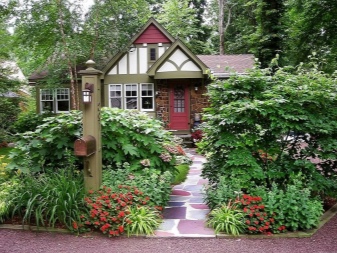
A garage or open parking space is often placed near the house. It is logical to place there a gate for the passage of vehicles. Design usually involves disguising the parking area with dense vegetation. There is a paved path between the main entrance and the doors of the house. It is recommended to plant plants along it, although sometimes it is limited to breaking the lawn - and it looks good too.
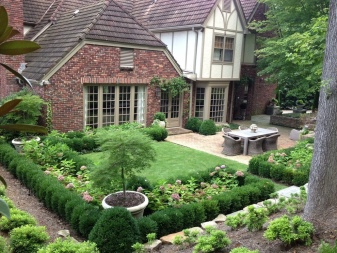
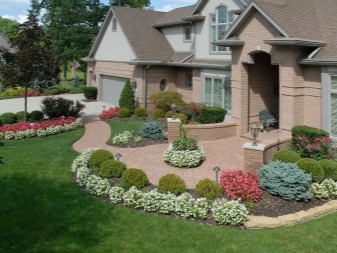
For relaxation with barbecue or hearth
In the leisure sector, it is useful to set:
- gazebos;
- patio;
- terraces.
They must be furnished with comfortable furniture with pillows (of course, made of weather-resistant materials). But more often, for reasons of economy and simplification of work, they are limited to arranging a barbecue and a hearth for a barbecue. Even in this case, however, it is recommended to put up round sofas and decorate the area with bushes. The leisure segment is required to be removed from the main house and from the car. It is advisable to place it in the backyard or in another place that is inaccessible to prying eyes.
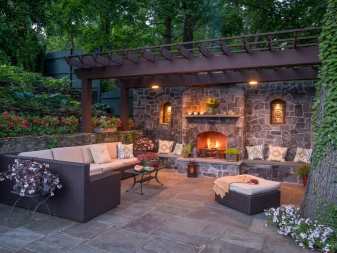
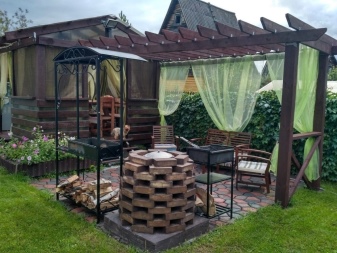
Not only adults, but also children regularly have a rest on the personal plot. It is better for them to fence off a special corner.However, in this case, and when using the common recreation space, it is very important to pay attention to safety. Children should be clearly visible from the windows of the house, as well as everything that happens around them. Be sure to use a soft surface, most often lawn grass or sand, sometimes special soft mats.
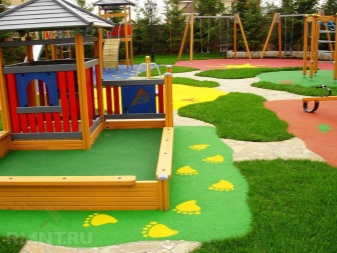
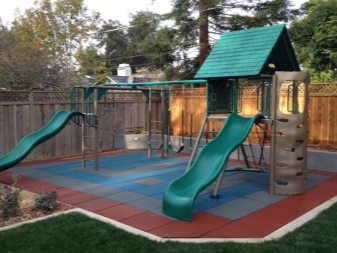
The size of the children's space is determined by the area of the site. But in most cases, 6-8 sq. m. You can put swings, a sandbox, and benches on them. With a larger area, it is worth equipping this place with a slide, a playhouse, and so on.
Kids should play in the sun - but still, a shady corner will not hurt them.
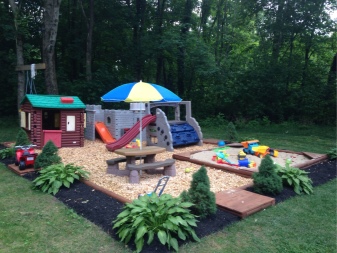
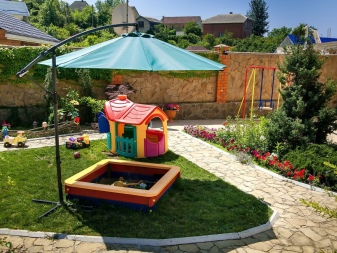
Gardening
Even with an acute shortage of space, a certain number of bushes and fruit trees can always be planted. Since more and more dachas and rural houses are used for a pleasant pastime, and not for food, many choose the option with a purely decorative flower garden. Regardless of this, the needs of specific plants, the suitability of the area for them and the possibilities for care should be taken into account. They also think over the visual harmony of the landings, which in many cases is sorely lacking.
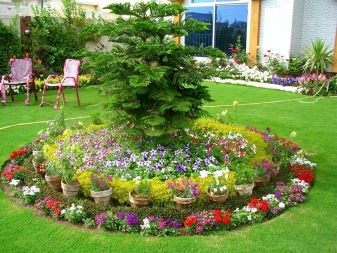
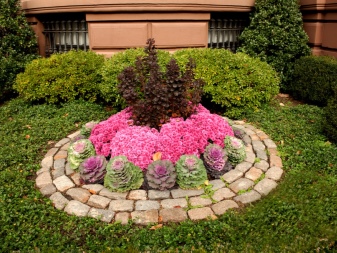
The volume can be demonstrated with a simple trick: placing higher crops closer to the perimeter, the middle is planted with low plants. On uneven areas, the vegetation is favorably complemented by alpine slides or rockeries. Excessive shading of the garden area is not welcome. Deep harmony must be maintained between the individual parts of the composition. It is highly desirable that this place is clearly visible from the side of the house and from the entrance to the site.
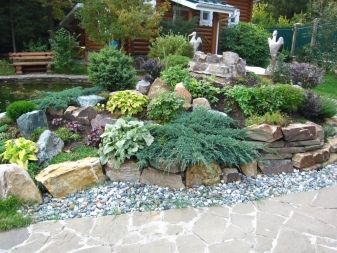
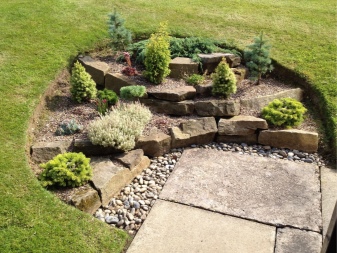
On sufficiently large areas, up to ¾ of the entire territory can be allocated for a gardening zone. It is advisable to plant large trees on the north side. Flowering fruit crops are good because they create a balance immediately in terms of the ratio of benefits and aesthetics. And among them, perhaps the best choices are:
- peach;
- Apple tree;
- Cherry;
- plum;
- pear.
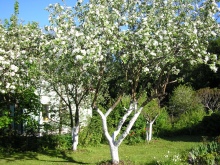
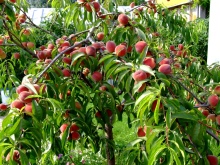
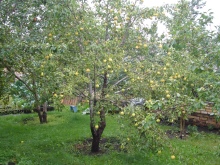
In the southern regions, you can choose more exotic options, among them:
- Garnet;
- figs;
- Walnut.
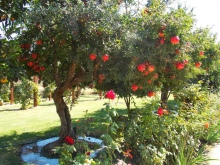
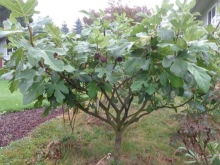
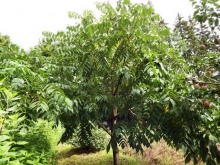
Economic
Yes, it can also become a beautiful element of the composition. But the main task is to put everything conveniently. In order to sensibly arrange the economic area on the site, you can use trellises with grapes or other plants intertwining fixed structures. Thinking over the composition of such a segment, you can build on the established set:
- garage;
- shed for tools and ancillary property;
- greenhouse or greenhouse;
- bath (summer or capital).
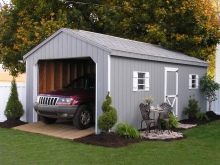
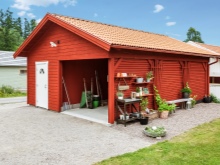
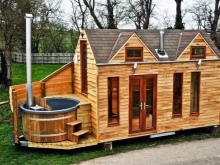
If the economic zone is large (on a site with an area of 15 "hectare"), it can be fenced off with gratings on which are placed:
- roses;
- clematis;
- grape.
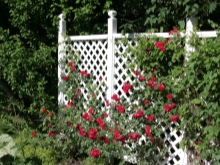
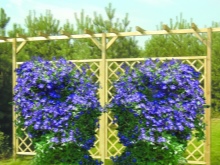
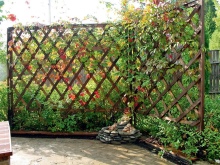
Styles
The landscape styles are somewhat different from those used indoors. And the first place should naturally be given to "regular" classics. A characteristic feature then is the straightness of the alleys and the severity of the forms of all landings. Fountains, ponds are placed in the center of the site or make them the middle of the composition. If they equip a gazebo, then only at the intersection of the paths.
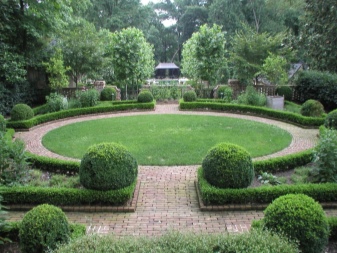
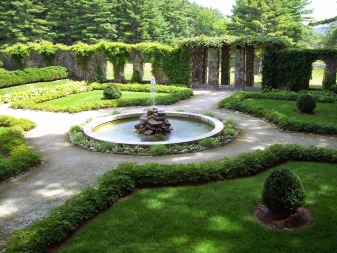
The classic style is good on large garden plots. It is compatible with any shade, provided the color is soft. Of all the plantings, topiary plants are the most suitable. The use of forged benches is encouraged.
Arches and sculptures in an emphasized antique spirit will also look harmonious.
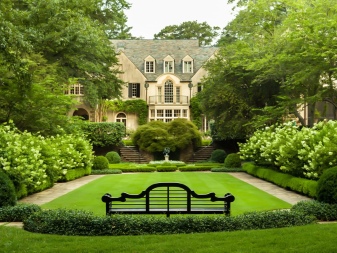
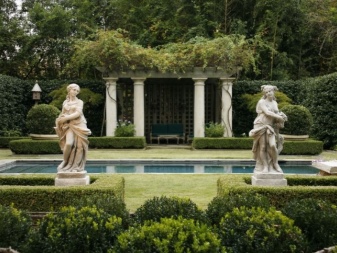
English is fundamentally different, it is also a landscape style. This approach is focused on the romantic idea of abandoning all strictness and on unity with nature. The less visually noticeable interference, the better (which does not mean, however, saving time and effort when leaving). Curvy contours are encouraged. It is recommended to decorate the entire space in green and silver colors, and resort to vertical gardening.
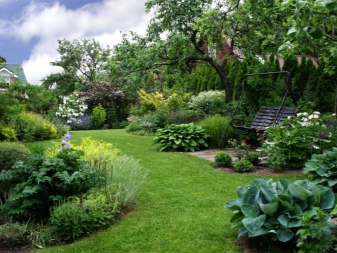
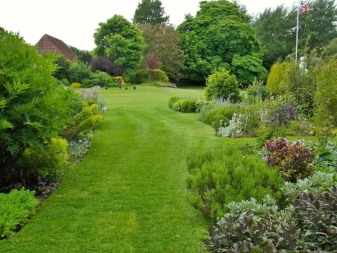
Also, the English design implies:
- an abundance of flowers;
- use of strictly natural materials for tracks;
- an introduction to the composition of emphatically antique objects.
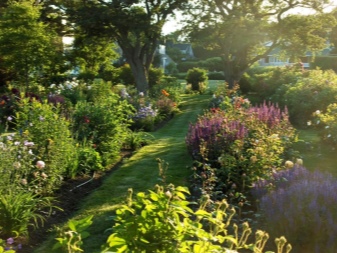
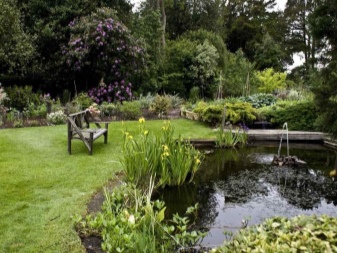
Plots in the spirit of country have been in demand for a long time. The rustic style with its simple solutions and an abundance of fruit trees is acceptable in any area. The design involves the active use of rich colors and natural materials. Curly crops are also welcome. Benches made of metal and stone, cart wheels, ceramics, flower beds and homemade accessories are used as decorations.
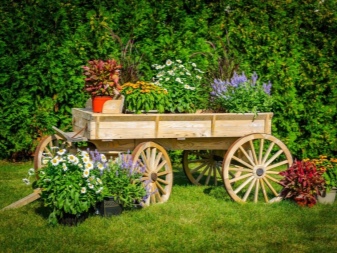
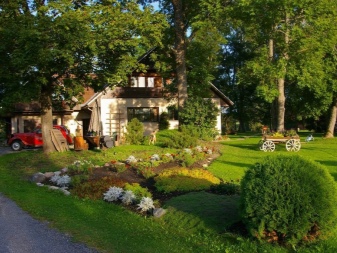
Quite a few people prefer bold landscape compositions. In this case, you need to use the high-tech style. Such a garden will require minimal maintenance. Plants are not planted in the beds, but kept in containers and vases of a strict geometric shape. The use of modern finishing materials is recommended.
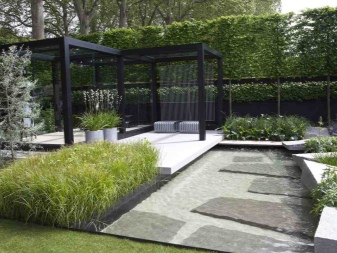
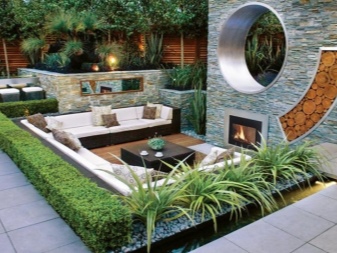
The minimalistic décor is inspired by the same principles as its indoor counterpart. Despite the apparent simplicity, the implementation of the idea is not so easy. The strict shapes in this approach are created without any hint of regular symmetry. Restrained colors prevail, catchy colors are used only for visual accent. A key requirement: all buildings and main parts of the garden must be made of the same material, but the choice of plants is left to the discretion of the owners.
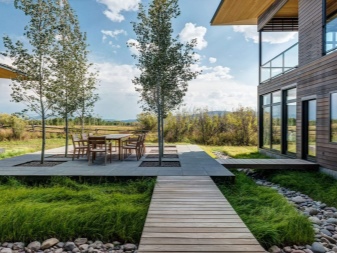
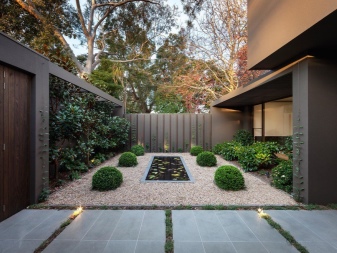
Lovers of extreme naturalness should give preference to an eco-friendly style. Such compositions look as if created by nature itself. There is no need to change the relief of the site, even more so, the less they interfere with it, the better. Plants are planted only those that themselves grow in the same area.
If furniture is used, then it is emphasized in a simple and rough form.
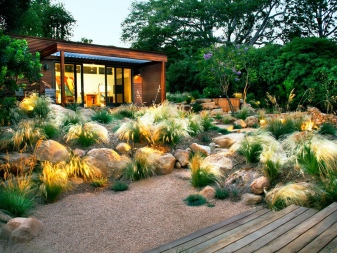
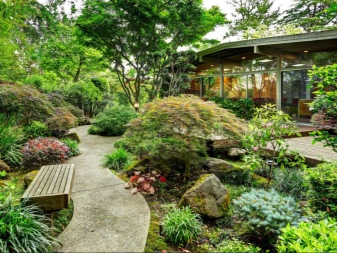
Lighting
Twilight and nighttime produce, of course, an enchanting effect - but it is even better if they are viewed "from the side", from a well-lit space. When thinking over a lighting scheme, they always pay attention to both convenience and safety. Allocate functional and decorative lighting. Lamps placed on poles should shine on gates, wickets and other passages. Of course, the light should not disturb those in the house or other houses.
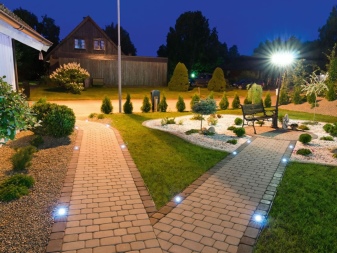
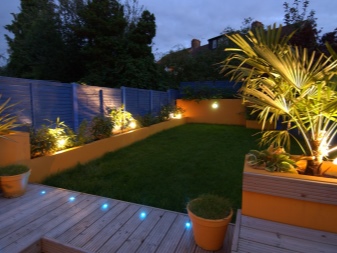
Decorative lighting is used for recreation areas and decorative objects. Usually it is dim and designed to bring a touch of mystery. There are no strict standards for it, everything depends solely on the will of the designers. Light sources are usually fluorescent and halogen lamps. But the use of incandescent lamps is not recommended.
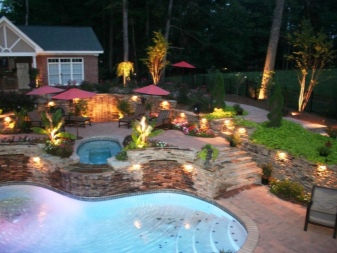
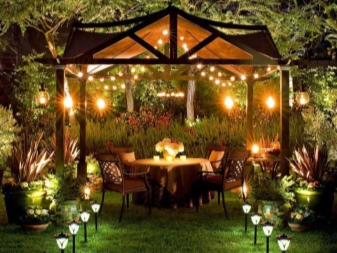
Landscaping elements
With your own hands in a private house in a village or village, it is quite possible to arrange flower beds. Their options are limited only by the imagination of the owners and the general concept of the landscape. Border beds can accentuate any garden area. They are mainly planted with perennial crops. Flower beds of the rabatka format are also popular.
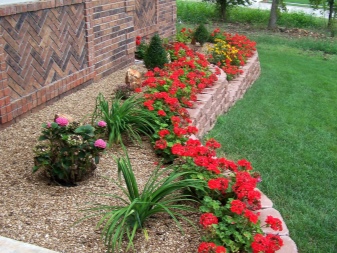
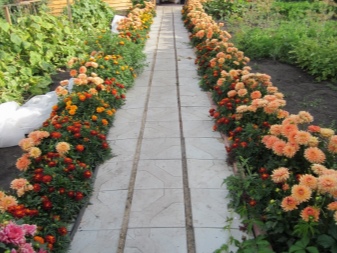
Landings in them are lined up in rows or formed symmetrically. Mixborders are adjacent to the walls of houses. But if there is a desire to decorate the space as brightly as possible, then you can use a flower garden of the "arabesque" type. It is always located on a large area. Asymmetry is a mandatory feature of such a composition.
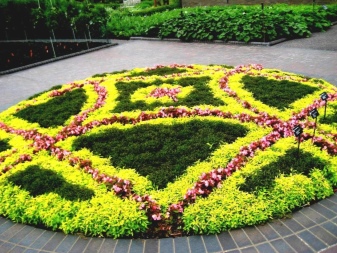
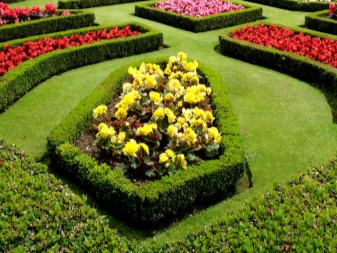
When preparing decoration using plants, it is better to pay attention to the least whimsical flowers:
- croppers;
- tulips;
- crocuses;
- muscari;
- chionodox;
- aquilegia;
- astilbe;
- periwinkle.
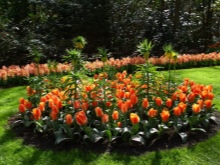
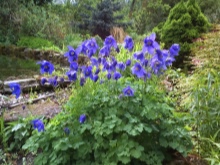
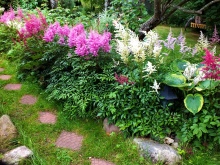
But flower decoration is not the only option. Other ideas could be used. For example, decor (crafts) from scrap materials. They are based on:
- old tires;
- unnecessary furniture;
- old transport;
- unclaimed dishes;
- various boards and plastic containers;
- pieces of pipes and fittings;
- hemp and driftwood.
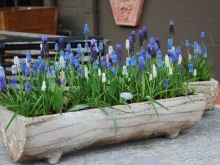
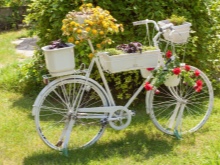
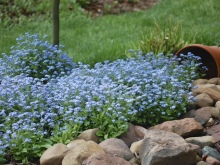
When arranging a garden in a natural style, it is useful to use large-sized ones.
All necessary areas should be highlighted unobtrusively. Ready-made architectural elements - cubes, triangles, arches - can be entwined with creepers. They will look very interesting and original. Hedges should not be more than 1.5 m in height. Otherwise, caring for them will be overly difficult and will require the use of complex mechanisms.
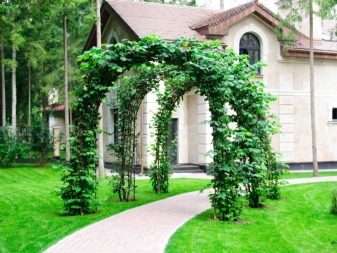
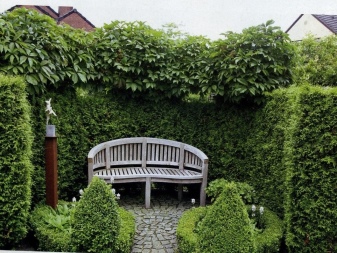
Quite a few people try to set up a pond on their personal plot. But sometimes serious mistakes are made. For example, a discrepancy in size with the surrounding landings. A tiny hole in the middle of dense powerful thickets looks frivolous. They also take into account how the reservoir will look against the background of other parts of the composition.
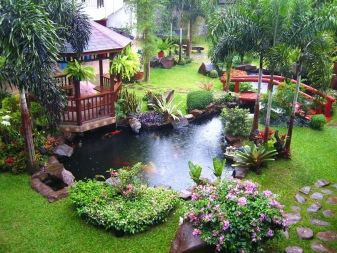
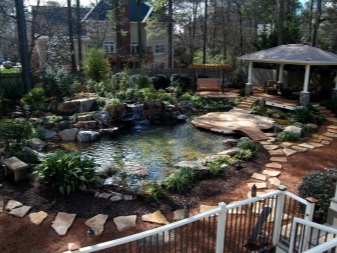
Other elements of landscape design deserve mention:
- rutaria;
- Moorish lawn;
- parterre lawn;
- alpine slide;
- green labyrinth;
- decorative staircase;
- forged bench;
- decorative bridge with handrails;
- cascading waterfall.
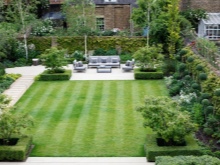
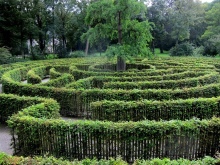
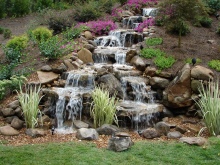
Beautiful examples
- The combination of terem-like buildings with an elegant pool and thoughtful plant composition looks very good and original.
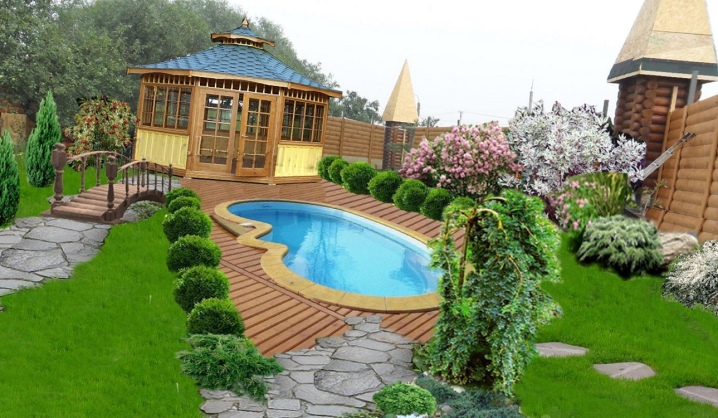
- The paved path that runs along the green meadow is also well received.
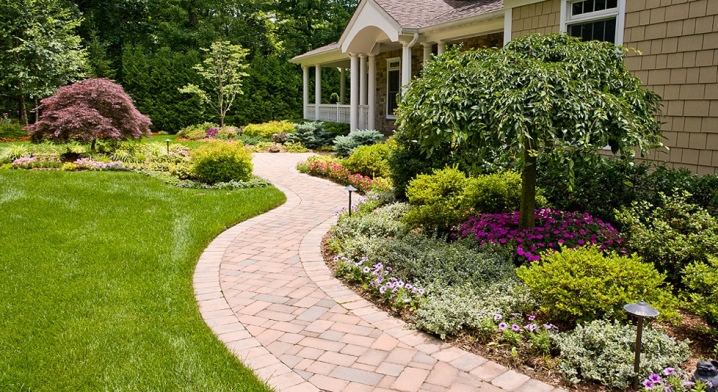
- And here you can see how attractive the combination of ground cover plants with a white stone layout turns out to be. The absence of tall bushes and trees is quite justified - they would probably be superfluous here. The composition is completed by a chic wrought-iron fence.
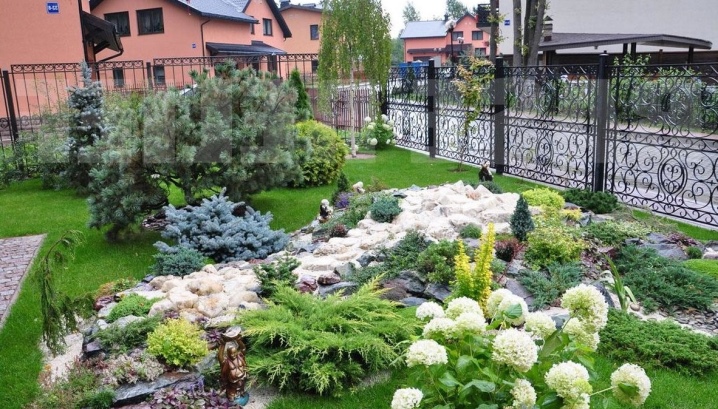



































































The comment was sent successfully.